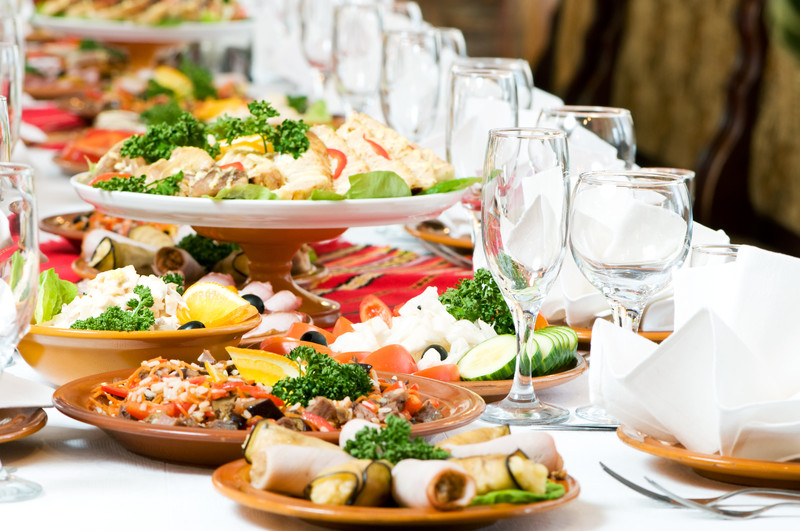It’s easy to take things like your diet for granted. Being able to eat and drink anything you like comes naturally to most of us, but there are many people out there who have the be incredibly careful when consuming anything. Some dietary needs involve those relating to religious beliefs, allergies, diabetes, lactose intolerance, gluten intolerance, and so on. When meals are prepared by your caterer, they will contain several ingredients, and you cannot expect your guests to know exactly what they are eating. Here are some tips to planning your wedding menu according to dietary requirements:
Ask in advance
When you send out your wedding invitations, you should include a clause that allows guests to notify you of any dietary requirements. Add a card with a checklist that includes various options like vegetarian, gluten-free, diabetic, and leave another option open for the guest to write anything that may not be included on the list.
Plan with your caterers
Once you have all of your RSVPs in hand, it’s time to sit down and talk to your caterers. If you are serving plated meals, then they will need to create precise quantities of each type of meal. If you are serving a buffet, it should include more than enough options suitable for all of your guests.
Buffet labels
If you are serving a buffet, you should make sure that the caterer provides labels for all the foods. Not only should these labels include the name of the food item but it should also be noted if that dish is suitable for those with specific allergies, diabetes, gluten intolerance, and so on. This will make it that much easier for your guests to identify the foods they are able to eat and those they should avoid.
Keep triggers separate
If you know that one of your guests has a severe nut allergy, for example, it might be best to avoid this ingredient altogether. If there are mild or general allergies to certain ingredients, these food items should be kept separate from the rest so that cross-contamination cannot occur. Cross-contamination is when the contents of one food item makes its way over to another bowl or plate. Your guests could unknowingly consume foods that result in allergic reactions.
Cost considerations
Avoiding certain foods that trigger allergies, like shellfish or nuts, could work really well for your budget. However, catering for a gluten-free guest is usually more pricey than your average price per person. Mention all of your dietary needs to your caterer in advance and draw up a plan together that will cater for everyone without breaking the bank.
Show understanding
There are some guests with severe allergies who prefer not to partake in the dining experience. They might eat before the wedding so that they don’t feel the effect of those hunger pangs. Try not to be offended by this gesture and try to offer them as many beverages as possible to get them through the night. If they specifically want to bring something along, they can do so and hand it over to your caterer to refrigerate or keep warm. This way, they can still have something to eat with the rest of the guests, and there’s no need to worry about allergies!
At BeWed, we have a list of professional catering services that operate throughout Toronto. The most important step towards a delicious wedding meal is choosing the right caterer!





